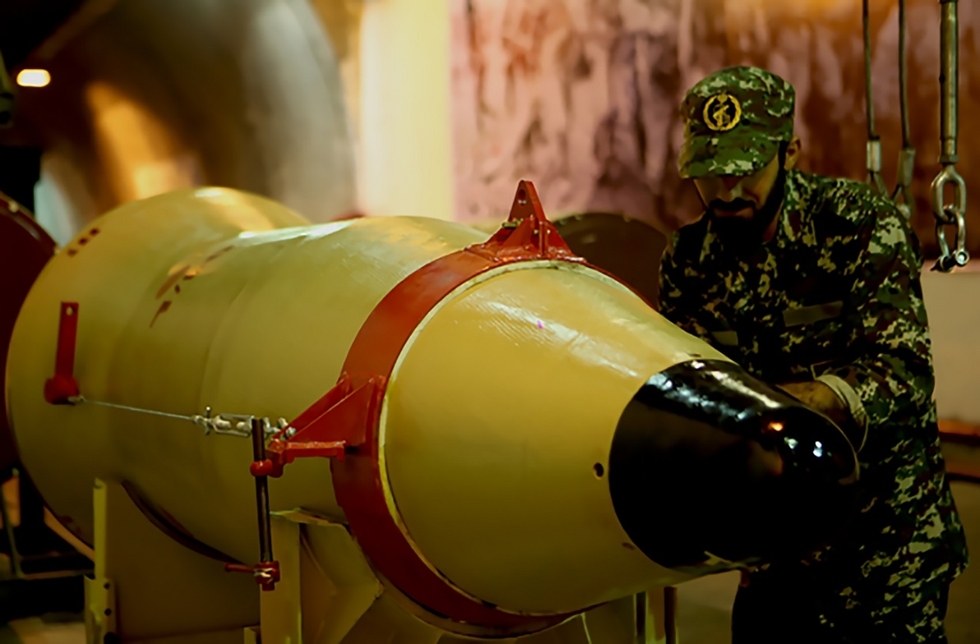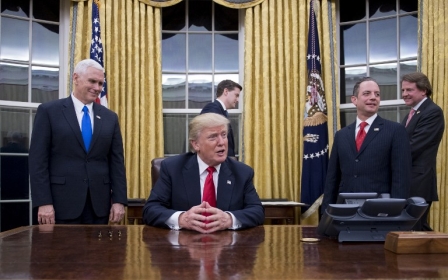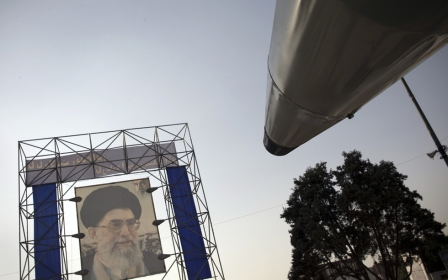US imposes new sanctions on Iran and sends warship to coast of Yemen

The US issued new sanctions against Iran and sent a navy destroyer to the coast of Yemen on Friday, amid growing tensions with Tehran over its recent test of a ballistic missile.
The sanctions target 13 individuals and 12 entities, days after the White House put Iran "on notice" over the missile test on Sunday.
In a statement on its website, the US Treasury listed the sanctioned individuals and entities, some of which are based in the United Arab Emirates, Lebanon and China.
In response, Iran announced it will take "reciprocal action" against US individuals and companies after President Donald Trump's administration on Friday imposed new sanctions on Tehran over its weapons procurement network.
"The Islamic Republic of Iran, in response to the new move by the United States of America and as a reciprocal action, will impose legal limitations for some American individuals and companies that have had a role in the creation and support of extreme terrorist groups in the region," the foreign ministry said in a statement.
The US said the move reflected its commitment to enforcing sanctions on Iran over its ballistic missile programme and its "destabalising activities in the region".
President Donald Trump tweeted that Iran was "playing with fire":
The US and some allied countries have said the missile tested on Sunday was capable of delivering a nuclear warhead and broke UN security resolution 2231, which bans such activity. The UN has yet to determine if the test contravened the resolution.
That resolution is separate from the nuclear deal agreed last year, which lifted other sanctions in return for Iran scaling down its nuclear programme.
Iran denies it broke any resolutions with the test.
Trump versus Iran: Three flashpoints that could spark war
These kinds of sanctions don't happen quickly but I think the timing of them was clearly in reaction to what we've seen over the last couple days," White House spokesman Sean Spicer said.
"We knew we had these options available to us because they had been worked through the process ... They were in the pipeline."
They were announced as the US placed the USS Cole destroyer off the coast of Yemen to protect waterways from Iran-allied Houthi militia, two US officials told the Reuters news agency.
The USS Cole arrived in the vicinity of the Bab al-Mandab Strait off southwestern Yemen where it will carry out patrols including escorting vessels, the officials said.
Earlier this week the Houthi movement attacked a Saudi warship off the western coast of Yemen, causing an explosion that killed two crew members.
The US and Iran have engaged in a war of words over the last week over the missile tests, with Donald Trump's administration saying it had put Iran "on notice" and Iran saying the new US president was "inexperienced" and his threats were "useless".
On Friday, Trump said on Twitter that Iran was "playing with fire," while Iran's foreign minister Mohammad Javad Zarif replied his country would "never initiate a war" but was "unmoved by threats as we derive security from our people".
"We will never use our weapons against anyone, except in self-defence. Let us see if any of those who complain can make the same statement," the Iranian minister wrote.
Designations
Among those hit by the new measures were companies, individuals, and brokers the US Treasury said support a trade network run by Iranian businessman Abdollah Asgharzadeh.
The Treasury said Asgharzadeh supported Shahid Hemmat Industrial Group, which the US says is a subsidiary of an Iranian entity that runs Iran's ballistic missile program.
Hasan Dehghan Ebrahimi, a Beirut-based official with the IRGC's Quds Force, which runs the military organization's operations abroad, was put under sanctions for acting on behalf of the Quds Force, Treasury said.
Treasury said he has facilitated millions of dollars in cash transfers to Lebanese militant group Hezbollah. Two of his employees and a company he manages were also sanctioned. Treasury said that Ebrahimi and his employees used a Lebanon-based network to "transfer funds, launder money, and conduct business".
The Treasury also sanctioned what it said was a Lebanon-based network run by the Islamic Revolutionary Guard Corps.
Three Lebanese companies involved in waste collection, pharmaceuticals and construction were also listed under the sanctions for being owned or controlled by Muhammad Abd-al-Amir Farhat, one of Ebrahimi's employees.
New MEE newsletter: Jerusalem Dispatch
Sign up to get the latest insights and analysis on Israel-Palestine, alongside Turkey Unpacked and other MEE newsletters
Middle East Eye delivers independent and unrivalled coverage and analysis of the Middle East, North Africa and beyond. To learn more about republishing this content and the associated fees, please fill out this form. More about MEE can be found here.




